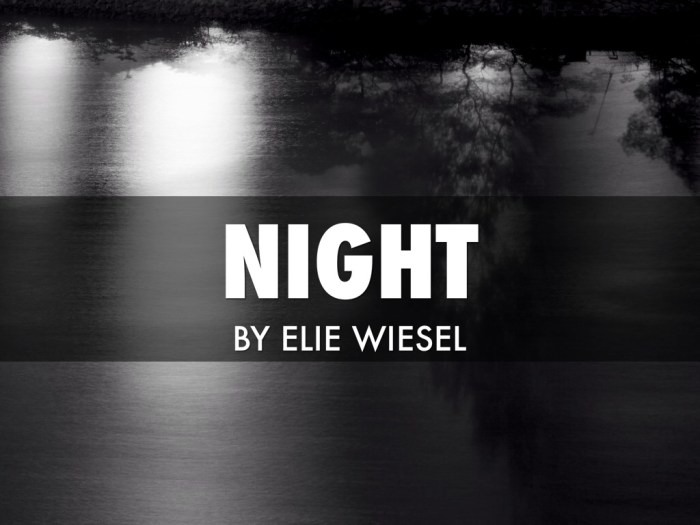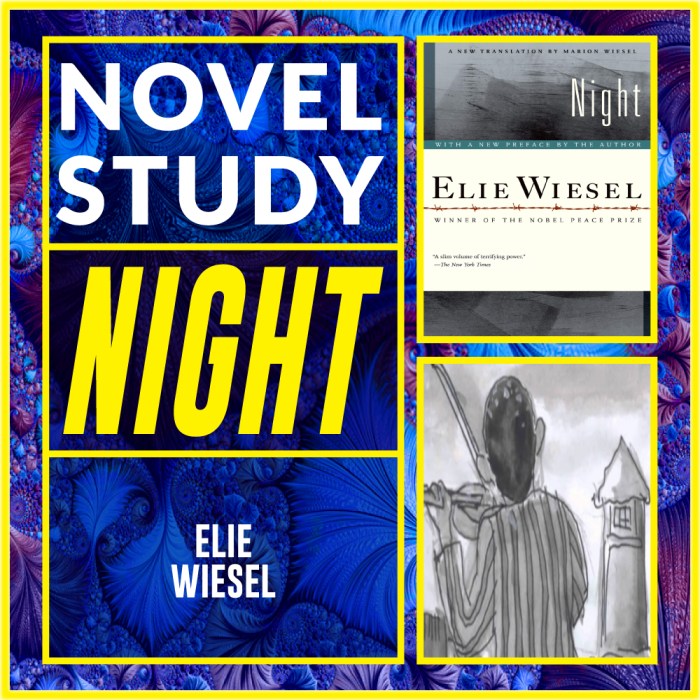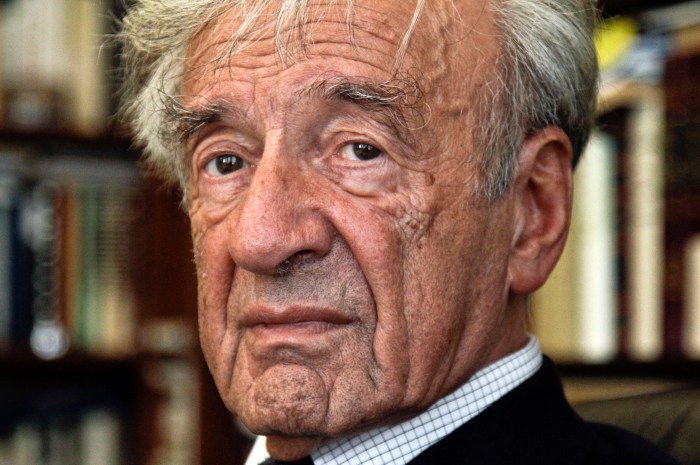Essential questions for night by elie wiesel – Essential questions for Elie Wiesel’s Night set the stage for this enthralling narrative, offering readers a glimpse into a story that is rich in detail and brimming with originality from the outset. This seminal work of literature delves into the profound depths of the human experience, examining themes of identity, faith, and humanity in the face of unimaginable suffering.
Elie Wiesel’s Night is a harrowing account of the Holocaust, narrated through the eyes of a young boy named Eliezer. As Eliezer endures the horrors of concentration camps, he grapples with questions that challenge the very foundations of his existence.
These essential questions, which resonate with readers of all ages, invite us to confront our own assumptions about the nature of good and evil, the limits of human endurance, and the power of faith in the darkest of times.
Essential Questions: Definition and Importance
Essential questions are open-ended questions that encourage critical thinking and deeper understanding of a literary work. They focus on the core themes and ideas of the text, helping readers to connect with the text on a meaningful level.
Elie Wiesel’s Night: Overview

Night is a semi-autobiographical novel by Elie Wiesel that recounts his experiences as a Jewish teenager during the Holocaust. The novel explores themes of faith, suffering, and the resilience of the human spirit in the face of unimaginable atrocities.
Essential Questions for Night
Essential questions that explore the major themes of Night include:
- How does the novel explore the nature of identity and belonging?
- How does Wiesel depict the struggle between faith and doubt in the face of suffering?
- How does Night illuminate the power of suffering and resilience?
Character Analysis: Eliezer
| Eliezer’s Character Traits | Examples from the Novel | Significance for Understanding the Essential Questions |
|---|---|---|
| Resilience and Strength | His ability to endure the horrors of the concentration camps | Demonstrates the human capacity for survival and hope |
| Faith and Doubt | His questioning of God’s existence and his eventual loss of faith | Explores the struggle between belief and despair in the face of suffering |
| Loss of Innocence | His transformation from a naive boy to a hardened survivor | Reflects the devastating impact of the Holocaust on the human psyche |
Symbolism and Imagery

Night employs powerful symbolism and imagery to convey its themes:
- Night:Represents the darkness and despair of the Holocaust
- Fire:Symbolizes both destruction and purification
- The Yellow Star:A symbol of persecution and discrimination
Themes and Connections: Essential Questions For Night By Elie Wiesel
Major themes explored in Night include:
- The Nature of Evil:Wiesel exposes the depths of human cruelty and the horrors of genocide
- The Power of Memory:The novel emphasizes the importance of remembering the Holocaust to prevent future atrocities
- The Resilience of the Human Spirit:Despite the unimaginable suffering, Night celebrates the strength and resilience of the human spirit
Holocaust and Human Nature

Night offers profound insights into the nature of humanity:
- The Capacity for Evil:Wiesel reveals the depths to which humans can sink in the face of prejudice and hatred
- The Importance of Empathy:The novel urges readers to confront the suffering of others and to work towards a more just and compassionate world
- The Power of Hope:Despite the darkness, Night offers a message of hope and resilience, reminding us that even in the face of unimaginable horrors, the human spirit can prevail
Historical Significance and Legacy
Night has had a profound impact on our understanding of the Holocaust:
- Personal Testimony:It provides a first-hand account of the horrors of the Holocaust
- Historical Record:It serves as a valuable historical document that helps us to understand the events of the Holocaust
- Moral Imperative:It challenges us to confront the darkness of the past and to work towards a better future
FAQ Summary
What is the significance of Eliezer’s character in Night?
Eliezer’s character serves as a microcosm of the Jewish experience during the Holocaust. His journey from innocence to disillusionment reflects the broader struggle of his people to maintain their faith and identity in the face of unimaginable suffering.
How does Night challenge our assumptions about good and evil?
Night forces us to confront the capacity for both good and evil within humanity. The novel depicts acts of compassion and selflessness alongside unspeakable cruelty, blurring the lines between victim and perpetrator.
What is the role of symbolism in Night?
Wiesel uses symbolism extensively to convey the psychological and emotional impact of the Holocaust. The darkness and cold of the concentration camps represent the spiritual and physical torment endured by the prisoners, while the recurring image of fire symbolizes both destruction and purification.